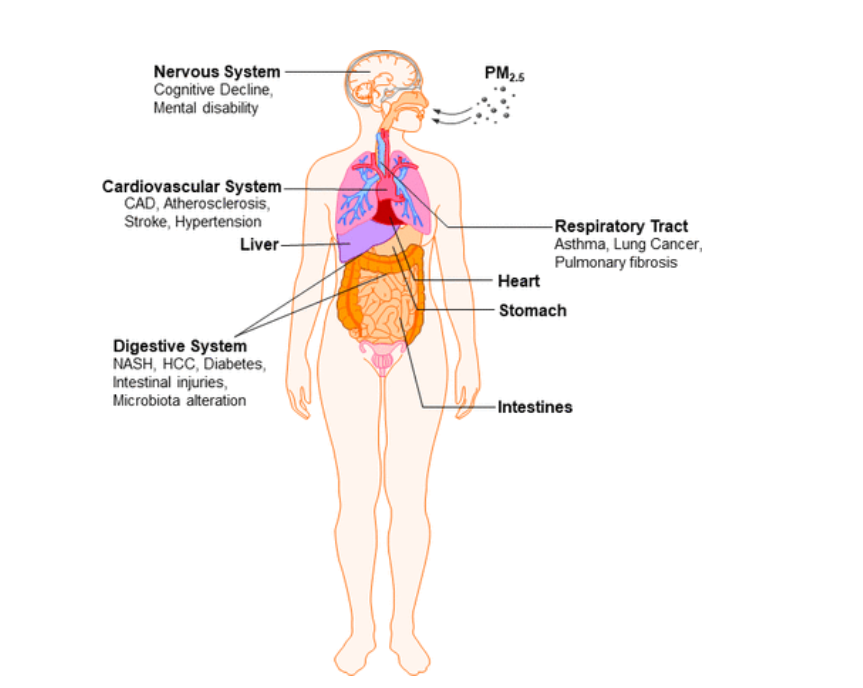Air pollution affects digestion: Scientists' announcement
 RBC-Ukraine collage
RBC-Ukraine collage
Air pollution is a global problem affecting the entire world, leading to health issues for many people. Particularly, polluted air poses a serious threat to the respiratory system. However, scientists have discovered that the digestive system is also at risk, citing Gastroenterology.
According to scientists, fine particulate matter with a diameter of less than 2.5 micrometers (PM 2.5) is the primary air pollutant causing various health problems.
These fine particles can penetrate deeply into the human lungs and even enter the bloodstream upon inhalation. Recent research has established that exposure to PM 2.5 can also damage the digestive system, including the liver, pancreas, and intestines.
Researchers investigated how PM 2.5 exposure triggers stress responses in digestive system cells. Stress responses were proven to affect specialized subcellular structures within cells, known as organelles, such as the endoplasmic reticulum (ER), mitochondria, and lysosomes.
PM 2.5 can destroy these organelles, causing a chain reaction within the cells, leading to inflammation and other harmful effects.
The liver, the main detoxification and metabolic organ in the human body, is particularly susceptible to PM 2.5 damage. The study showed that PM 2.5 exposure results in a myriad of liver problems, including inflammation, stress responses, and organelle damage.
Energy metabolism disruption can also occur, potentially contributing to the development of non-alcoholic fatty liver disease (NAFLD) and type 2 diabetes.

But it’s not just the liver that can suffer. PM 2.5 can also affect the pancreas and intestines. Scientists have linked PM 2.5 to an increased risk of pancreatic dysfunction in people with diabetes, as well as to intestinal cell damage and increased permeability, causing serious digestive issues.
Currently, scientists are working to understand how cells perceive PM 2.5 and how stress responses differ among various digestive organs. They are also studying how PM 2.5 exposure affects the connections between different digestive organs.
This material is for informational purposes only and should not be used for medical diagnosis or self-treatment. Our goal is to provide readers with accurate information about symptoms, causes, and methods of detecting diseases. RBС-Ukraine is not responsible for any diagnoses that readers may make based on materials from the resource. We do not recommend self-treatment and advise consulting a doctor in case of any health concerns.

